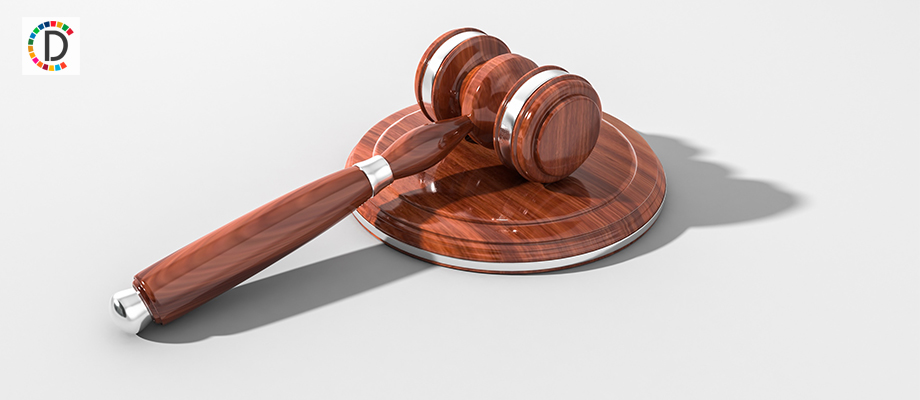Info on extension of LS Secretary General's tenure not exempted under RTI, says HC

- Country:
- India
The Delhi High Court has held that information on the extension of tenure of Secretary General of Lok Sabha is not exempted from disclosure under the RTI Act as it is granted by the Speaker, head of the administrative wing of the House. The court said parliamentary privilege is not a "catch-all phrase" to claim blanket protection from disclosure of information that is connected with a legislative body.
Justice A J Bhambhani directed the Lok Sabha Secretariat to give the information to RTI activist Subhash Chandra Agarwal on queries relating to the extension of tenure of the then Secretary General of the Lok Sabha in 2011. The information was earlier denied to the RTI applicant on the ground that it would amount to 'breach of privilege' of Parliament and the information was exempted under section 8(1)(c) of the Right to Information Act.
He had sought complete and detailed information with related correspondence or file-notings on action taken on letter of then Leader of Opposition Sushma Swaraj written to the then Speaker of Lok Sabha Meira Kumar against granting an extension of one year to Secretary General of the House T K Vishwanathan. The information was denied by the Central Public Information Officer of Lok Sabha Secretariat on the ground that communications and consultation by the Speaker with functionaries of the House, in this case, the Leader of Opposition, in the discharge of constitutional duties may cause a breach of parliamentary privilege.
The Central Information Commission (CIC) had also dismissed Agarwal's appeal and upheld the CPIO's order against which he appealed in the high court. Justice Bhambhani, however, said, "In the circumstances, I am of the view that information in relation to consultation and communications that went on between the Leader of the Opposition, the Leader of the House and the Speaker in relation to the extension of the Secretary General's term enjoys no exemption from disclosure, much less on the ground of parliamentary privilege; and ought to have been disclosed."
The high court said the extension of Secretary-General's tenure was granted by the Speaker as the head of the administrative wing of the House and not by any collective or collegiate action or decision on the part of the House or any committee of the House. It said the matter of extension of tenure was not debated or discussed by the House since it was not part of the legislative function or any other parliamentary function of the House or any committee of the House and this communication between the functionaries did not pertain to their role in any proceedings in Parliament.
"Disclosure of such consultation and communications would not, by any stretch of imagination or reasoning, hinder, impede or interfere with the participation of the Leader of the Opposition, Leader of the House and/or the Speaker in any proceedings of the House; and did not have the potential to distort, obstruct or threaten the integrity of the legislative process in any manner. The disclosure would not be prejudicial to the core legislative function of the House," it said. The high court set aside the order of the CIC saying the CIC committed an error in not deciding whether the information sought by the petitioner falls within the exemption under section 8(1)(c) of the RTI Act and instead of leaving that issue to be decided by the Speaker.
Lok Sabha Secretariat was represented through advocate Rajshekhar Rao. The court said once it has come to the conclusion that the information sought has nothing to do with proceedings in Parliament and is therefore not covered by the very concept of parliamentary privilege, the question of the exemption under section 8(1)(c) applying to such information does not arise.
"I also hold that in this case the petitioner's statutory right to information must trump the plea of parliamentary privilege since the latter must be construed so as to confine it to cases where it is necessary for preserving and protecting legislative function," the judge said. The court said that the information sought by the petitioner be furnished to him within four weeks and if the information has already been weeded-out in compliance with the rules for weeding-out or destruction of records of Parliament, an affidavit of the appropriate officer be filed in the court.
(This story has not been edited by Devdiscourse staff and is auto-generated from a syndicated feed.)
ALSO READ
CJI Chandrachud bids farewell to Justice Aniruddha Bose, calls him stellar judge
Kerala HC stays single judge order upholding MVD circular on driving licence renewal
Witnesses in Trump documents case can remain private, judge rules
Entertainment News Roundup: 'Top Gun: Maverick' lawsuit against Paramount rejected by US judge; Actor Jonathan Majors avoids jail after domestic violence conviction and more
CJI terms retiring SC judge Aniruddha Bose 'bhadralok', compassionate person










